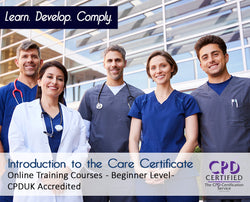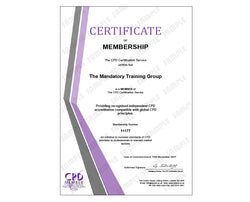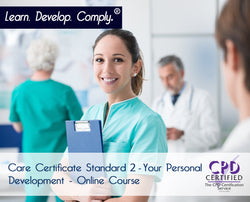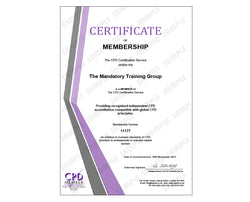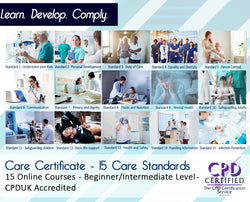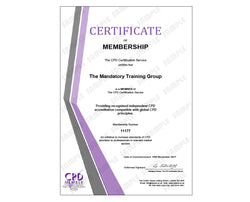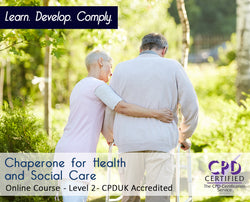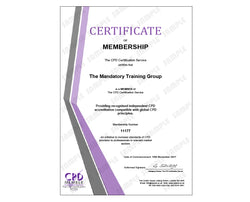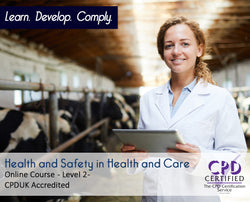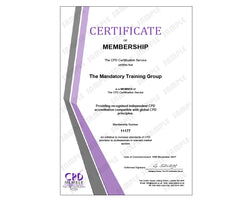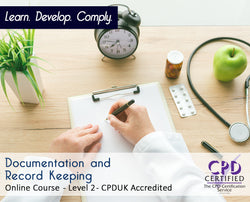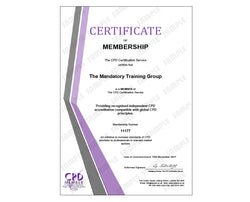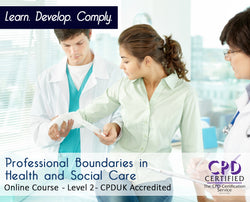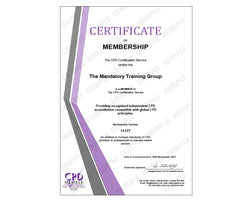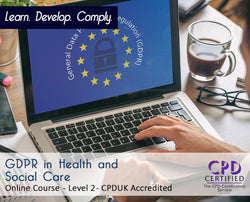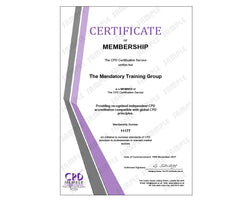Marie A.
excellent course, great refresher and awesome customer care.
Mohammed Mamunur Rashid M.
Excellent course
Mudawi H.
Very informative and easily understood and explained.
Melissa Pritchard
Someone who lacks confidence in computer skills this site was straightforward and user friendly.
Luca Booth
Very easy to follow courses (I've done 4 modules now).
Natasha Fleming
Fantastic! Recommend to everybody! Very happy customer!
Tegan Fisher
Fantastic way to do your course. I did it at my own pace and really helpful studies
Oscar Rowley
I am used to the face to face training courses. ELearning isn’t quite the same. The course was ok though.
Hayden Kelly
Easy to apply to do the course and really easy setup for the course making it enjoyable as well as informative
Paige Rogers
I thought my experience with you was very good, very helpful and how it reads it out for you I think is really good as it helps you to take it all in better.
Finlay Yates
Easy to use & understand with all the information needed.
Mason Young
Very good and easy way of doing training course
Jessica McKenzie
It was easy to understand and remember!!
Jade Kennedy
I enjoyed the fact that I can do a section at a time without having to sit and do the whole course in one go. I also like the fact that the course has a sound feature.
Jasmine Watkins
I liked this course easy to do online and at your own pace.
Millie Whitehouse
easy to follow, clear and precise.
Bethany White
Course was informative and had all the elements that are required.
Leo Kaur
Course was great and very informative, I like the audio.
Flick Drummond
Easy to complete at work or home.
Eoin Kinnock
Good experience.
Oscar Armstrong
The information was good
Kieran Edwards
Good course with easily understood information
Maisie Glover
An excellent way to learn basics, easy to use tutorials, with plenty of time to go back over the tutorial. Would recommend The Mandatory Training Group.
Sienna Dixon
Very informative course
Ewan Green
Very well organised to allow for interruptions etc. Completed within the suggested timeframe.
Georgia Graham
excellent quick curse
Yiorkis Charalambous
I enjoyed doing the course on line being able to do it at home at my own pace was so less stressing than being sat in a classroom
Chris Brokenshire
Clear sections, good use of exercises at the end of each section, good quiz at the end.
Matilda North
I could do it at my own pace with my children around.
Lyn Bone
Good course and informative
Sophie French
I found the course user friendly, it is nice being able to work through the sections at your own pace
Courtney Hyde
It's really good to be able to do sections at a time at your own leisure rather than being brainwashed all at once in a classroom.
Lucas Richards
Clear and well presented course
Lydia Goodwin
You get the login credentials pretty quickly. The courses are easy to follow. Does what it says on the tin
Max Ingram
Very supportive team, easy to set up
Chelsea Stewart
This is a very simple site to access and a very simple and easy course to complete.
Peter Fry
It is structured well and very easy to follow
Zoey Duncan Smith
Very good course Easy to use and understand
Poppy Bradley
The course is well designed and flowed seamlessly.
Kayleigh Gill
The course was designed well. Covered the key learning outcomes adequately.
Sofiah Selous
This is the second time I have used The Mandatory Training Group to renew my certificate and have been very satisfied with the way it is conducted and explained and no doubt I will be using it again in 3 years time.
Thank you.
Skylar Metcalfe
Brilliantly explained.
Easy visuals and graphics.
Cameron Webster
A very good course. I would recommend to others
Laura Stone
The training was easy to follow and gave the information during the quiz that perhaps you didn't quickly get or take in at the time of audio output.
Noah Kirby
so easy to read and understand, i would recommend this course to anyone
Barry Gardiner
Very good course
Maddison McNally
Audio greatly assisted the sight impaired
Maisy Siddiq
Very straightforward instructions. Learned quite a lot of what may be very useful information.
Freddie Whittaker
It was easy to follow, clear and concise.
Ava Gallagher
I felt the course was easy to follow.
Rushan Ali
Really easy to find the courses that I wanted to do.
Megan Edwards
There was no pressure to complete the course. And you can go back to review the answers.
Emma Smith
Loads of good information, enjoyed the assessment.
Alison Afriyie
Ease of access, the audio facility was brilliant, it has more impact when listened to than when just being read.
Layton Butler
Very good course.
Zara Dale
excellent training provided
Oliwia Gibson
Very understanding and supportive company. Quick response to email enquiries.
Cian Murray
Very easy to follow. Very convenient to do from home.
Daniel Pratt
Really good course have learned a lot and will be able to take into the workplace
Yusuf Madders
The Online modules were easy to follow and I finished the course feeling more confident in the area.
Andrea Bacon
Found the whole course quick and easy to do.thanks
Aidan Pope
Interesting and I have learnt a lot. Easy to read and understand.
Abigail Sharp
Easy to understand. Interactive system
Yasmin Brookes
Easy to follow the course
Lola O'Neill
Very easy to read, understand and answer questions.
Hollie Pritchard
The Mandatory Training Group allowed me to get staff trained and certified quickly easily and cost effectively. Will use this again.
Alyn Smith
I like the course. It is a good starting point.
Chris Brokenshire
Very informative and easy to follow
Abigail Woods
Highly recommend it to others.
Syed de Cordova
I found the course easy to understand and to the point. Testing you on each section I found it helps you to remember. Also very easy to access when I had logged out would recommend these courses .
Nathan Price
easy to understand
Olly Cash
All modules were explained very well.
Adam Matthews
I'm happy to work with The Mandatory Training Group
Amy Callaghan
The training modules were very clear to read and the voice-over was at the correct tone for me to follow and listen too. The technical support service was very helpful and supportive.
Jacob Barnett
Very clear training. Easy to follow.
Zak Hartley
Great to be able to complete the course I needed for my business at home as alternative courses are all run at times that I can't attend.
Jessica Thorpe
Really easy to find the courses that I wanted to do.
Stephen Timms
A very good course easy to follow didn't last too long.
Shannon Hope
Easy to follow information with clear key points
Ariella Hobhouse
Covered the course very well, easy to understand
Morgan Byrne
Very easy to understand
Jay Sutton
amazing course really easy to understand!
Jami Clarkson
Easy navigation. Easy to understand. Straight forward.
Thomas Mann
Excellent course. Quick and thorough.
Hamza McDonald
It explained everything and more that is necessary for me to know, in great detail.
Charlie Pratt
I found this course very interesting and very informative.
Keira Mitchell
Course was easy to follow and understand
Erin Harvey
It was very good and I was impressed with the teaching of the subject
Millie Middleton
Excellent! Simple, Clear, Concise, Informative!
Fiadh Harper
It was very informative and to the point.
Henry Dyer
Very good and well written course
Evie Carter
Spend as long or as little time as you want to . Whenever you want to
Alfie Bailey
Comfort and flexibility. No rush.
Fabian Sobel
Nice and easy to follow, clear instructions, thorough coverage of material and subject.
Sophie Wilkinson
Highly recommended e-learning company
Tyler Barber
Very pleased with the course. The course was very clear and was easy to understand. It’s good that you can download the certificate afterwards. No need to wait for days.
Holly Kabwe
I felt at ease & I highly recommend it.
Dhafer Hussein
Nice and easy to understand and follow with quiz type questions, simple and fabulous!!
Zak Goddard
Good course, covering all I needed to know.
Ava Hawkins
Excellent variety of courses at reasonable prices. The modules are easy to follow and comprehend.








